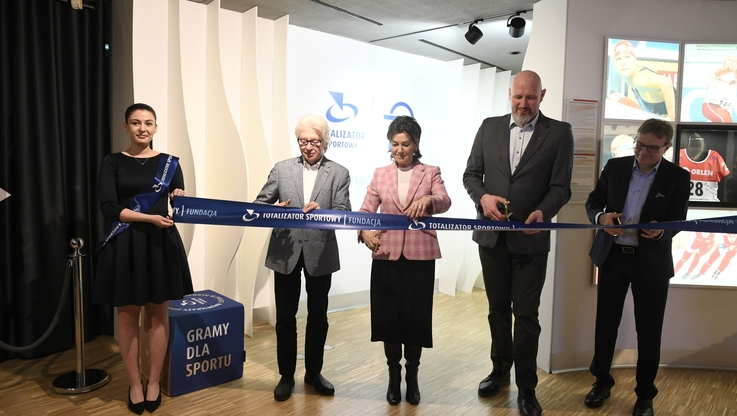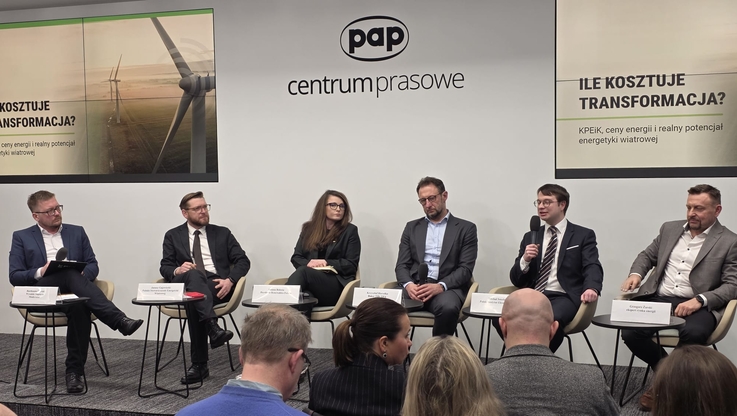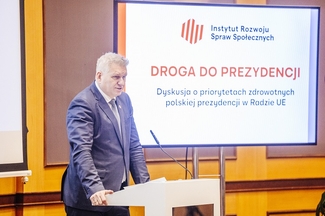Pobierz materiał i Publikuj za darmo
In total, six Polish coal regions are making efforts to procure EU funds for the implementation of Territorial Just Transition Plans, yet at this point only three of them can be certain they will get financing – Dolnośląskie, Śląskie and Wielkopolskie Provinces.
Representatives of the Polish Ministry of Development Funds and Regional Policy and local government officials participating in the discussion on the ESPON programme’s web platform jointly appealed for European solidarity and avoiding the exclusion of some coal regions. The meeting was attended by representatives of the European Commission, the mining regions, and the governments of Poland, Bulgaria, Czech Republic, and Romania.
As presented in ESPON’s reports and analyses, the implementation of the European Green Deal, assuming the EU's climate neutrality by 2050, will affect 108 mining areas across Europe. It is these places that are expected to receive funds under the Just Transition Fund (JTF). In 2001-27, from the total pool of EUR 17.5 billion, EUR 4.4 billion is expected to reach Poland.
“Currently there are still ongoing negotiations regarding the details of using support from the JTF”, Wiktor Szydarowski, ESPON Director, assured the debate's participants. As he emphasised, the condition for applying for these funds is the preparation of Territorial Just Transition Plans, showing the directions for future changes in each of the regions applying for aid.
The challenges facing Polish regions were discussed by representatives of two provinces, Lubelskie and Śląskie. They pointed out that although they have different experiences and the scale of changes in their regions are not the same, jobs and a sense of security among citizens are equally important everywhere.
“Two years ago we were still planning the expansion of the Bogdanka S.A. Lubelski Węgiel mine, but a year later we made a conscious decision to turn towards a green economy”, Zbigniew Wojciechowski, Deputy Marshal of the Lubelskie Province, said.
In his view, the energy transition in the Lubelskie Province will be far from easy, as the region ranks as one of the poorest regions in the whole of the EU and Bogdanka is the leading employer in this area.
“We are such a strong academic centre with a well-developed environmental awareness that perceives decarbonisation as unavoidable and forward-looking. But we need help to achieve this”, Zbigniew Wojciechowski explained.
The efforts of the Lubelskie Province officials are reflected in the objectives listed in the regional plan for energy transition: reducing coal extraction by 33 percent by 2030 and by 74 percent by 2040, as well as increasing the RES share in the energy mix to at least 45 percent by 2030.
Dariusz Stankiewicz from the Marshal’s Office of the Silesian Province expressed similar views. He reminded the participants that the process of transition in the regional economy and the gradual departure from coal has been going on for over 30 years now, but the coming decades will decide whether it succeeds.
“Seven subregions in Silesia are applying for funds from the JTF and it’s a hotly contested topic in each of them. It is essential to run an effective information and participation policy and also to inspire a sense of solidarity across the country. Achieving climate neutrality is the common goal of the whole EU, which is why support from the Fund should cover all affected regions”, Dariusz Stankiewicz stressed.
Renata Calak, Director of the Department of Strategy at the Ministry of Development Funds and Regional Policy also highlighted the ambitious plans of the Łódzkie Province’s local government, which aims to reduce CO2 emissions in the coming decades by 77 percent.
“Perhaps fewer people think about Łódzkie in the context of coal than about Silesia. But the reality is that employment in the region’s coal sector is currently over 7 thousand people, and by 2030 it will be cut by 43 percent”, Renata Calak said.
A meeting of the representatives of the Polish Government and the European Commission took place in early June, almost at the same time as the ESPON debate. It was agreed that the EC will provide Poland with a list of questions regarding three provinces applying for support from the Fund. After the answers are submitted another round of negotiations will open before the end of June.
Source: PAP MediaRoom
Pobierz materiał i Publikuj za darmo
bezpośredni link do materiału
| Data publikacji | 18.06.2021, 11:54 |
| Źródło informacji | PAP MediaRoom |
| Zastrzeżenie | Za materiał opublikowany w serwisie PAP MediaRoom odpowiedzialność ponosi – z zastrzeżeniem postanowień art. 42 ust. 2 ustawy prawo prasowe – jego nadawca, wskazany każdorazowo jako „źródło informacji”. Informacje podpisane źródłem „PAP MediaRoom” są opracowywane przez dziennikarzy PAP we współpracy z firmami lub instytucjami – w ramach umów na obsługę medialną. Wszystkie materiały opublikowane w serwisie PAP MediaRoom mogą być bezpłatnie wykorzystywane przez media. |






